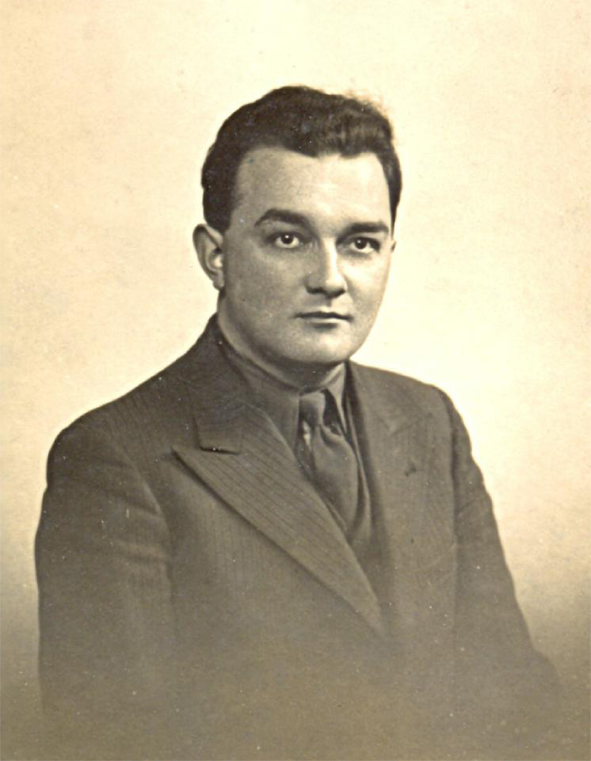
- 7 clarence grove
- horsforth
- leeds, LS18 4LA
- UK
- tel: 0113 258 1300
- order online
- www.editiondb.com
- info@editiondb.com
Linstead, George (1908-1974)
George Frederick Linstead (1908-1974) was born in Melrose, Scotland, in 1908, the youngest child of a stud-groom whose work took the family from Scotland to Doveridge in South Derbyshire. Following the death of his father when Linstead was 14, the family moved to Sheffield, where Linstead spent the rest of his life.
From an early age, Linstead showed a great talent for music, writing his oratorio "The Revelation of St. John the Divine" at the age of 13. When he left school at 15, he studied music in his spare time, and took the degrees of Bachelor and Doctor of Music, both externally, from Durham University. One of his mentors was Professor Frank Shera at the University of Sheffield.
Linstead´s musical career included music critic for the Sheffield Morning Telegraph from 1940, and part-time lecturer at the University of Sheffield from 1947. He was also choirmaster and organist at St. Mary´s Church, Walkley, and Christ Church, Fulwood, until his death.
Linstead has been described as "a very English composer, delighting in the glories of the countryside which surrounds Sheffield, and influenced by the English tradition of church music". He was also fond of French music, especially Poulenc, and its influence can also be seen in his compositions. Linstead´s output was prolific, tending to works for chamber orchestra and soloist, but his overtures also indicate a talent for orchestration for a full orchestra.
________________________________
Ignoring the many pastiche works, especially those composed after the Second World War and before the late 1960’s, perhaps it is best to describe Linstead as an eclectic British composer of the mid twentieth century whose works display an unusual degree of originality, a knowledge and sympathy with continental works of the early part of the century, and stylistic scope. Noteworthy is how much more ‘modern’ his style is than that of either of this teachers, Shera and Bairstow. Linstead did not belong do any ‘School’ as such and, in that sense, he is like a provincial Frank Bridge but of a later era. He certainly admired Poulenc and Les Six, but it is difficult to find much influence of French music in his works outside a couple of the shorter piano pieces and his Overture ‘In the French Style’. Havergail Brian, who also had a provincial northern background, is a point of comparison in terms of style and individuality and perhaps even in his approach to harmony.
Linstead was clearly an eclectic, but unlike Bax, Britten or Ireland, one who never developed a consistent style but who nevertheless was able to maintain in successive pieces a personal touch—particularly in the harmony.
To the historian, it is not perhaps Linstead’s compositions that prove the most interesting aspect of his life. Rather, it is the part he played in the history of music of his adopted city for half a century and the way his life illustrates the career of a freelance professional musician of his times, not least in the wide range of tasks he had to perform in order to make a living from music. It is difficult to decide whether Linstead was at his best as a composer, performer or a writer on music. He himself would have wished to be remembered as a composer, but the truth is more complex. He was a gifted musician who reached fully professional standards in all three areas of composition, performance and musicology. His contribution does not lie in just one of them, it rests on all three. He was certainly one of the most resourceful musicians of his generation. Not least, his life illustrates how it was possible for very talented but poor boy in the first half of the twentieth century, with the help of other distinguished and talented musicians, to reach the highest professional standards without ever having attended full-time either a college or a university. In that sense alone, there is not more worthy successor to Sir Henry Coward in the history of music in Sheffield, than Dr George Frederick Linstead.
Christopher Powell

Compositions in catalogue |
Catalogue no. |
Price £ |
To buy click PayPal links below |
Composer/arranger |
||
Chamber Music series |
||||||
Horn and piano |
||||||
| Sonata for horn (or cello or bassoon) and piano | edb 0702024 |
24.00 |
George F Linstead | |||
| Chamber Music series | ||||||
OTHER INSTRUMENTAL/VOCAL DUOS |
||||||
Canzonet for oboe and piano |
edb 0702025 |
12.00 |
George F Linstead | |||